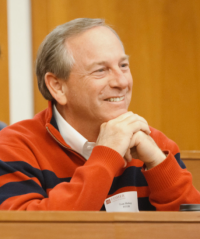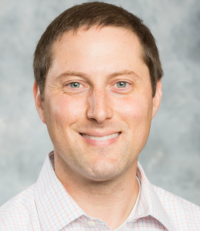In 2000, the Statistical Consulting Service (SCS) was directed by faculty members appointed to the position and staffed by graduate students as part of their training. Tom Santner and Bill Notz, served as co-directors 2000-2003. In 2003, the Department decided to find a full-time director who would handle both internal consulting as well as soliciting external projects with the goal of making the service self-supporting. To this end, the Department hired Tom Bishop, who served as Director from 2003-2007.

As Director, Tom led the effort to form a new partnership with Nationwide Insurance to establish the Nationwide Center for Advanced Customer Insights in the Fisher School of Business here at Ohio State. The Center was fully funded by Nationwide and managed by Ohio State. It employed faculty members and graduate students from the Marketing, Statistics, Psychology, Economics, and Computer Science Departments to develop new analytical methodologies that help solve important marketing problems. A course, STAT 6750, was set up by Tom Bishop and Doug Wolfe for students across the university as an introduction to consulting-specific technical skills and experience working on consulting projects with advice from Statistics GTAs with faculty supervision. The course helped to stabilize finances for the consulting service which, in turn, allowed expansion of the SCS staff.

Tom retired in 2007 and Chris Holloman served as Director of the SCS from 2007-2017, after serving as Associate Director in 2006.
The Consulting Service also received external funding, such as that for work with the Ohio Department of Traffic (ODOT). To assist Holloman, Steve Naber served as Senior Consulting Research Statistician from 2010-2018. In 2017, Chris Holloman left the Department and the Consulting Service activity reverted back to individual faculty. The consulting course, STAT 6750, continues today.
In Spring 2007, graduate students Jeff Pan and Chris Sroka started Statistics in the Community (STATCOM) at Ohio State. This comprised a group of volunteers that provided limited, free, statistical consulting services to the local community. It served government and non-profit organizations that did not have the funds available to hire a professional statistical consultant. The idea for STATCOM came from graduate students at Purdue University, where a similar program had been operating since 2001.
